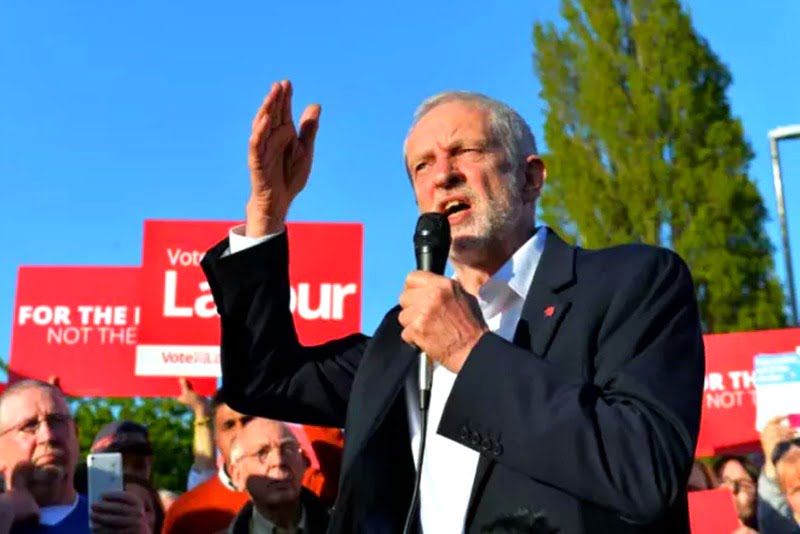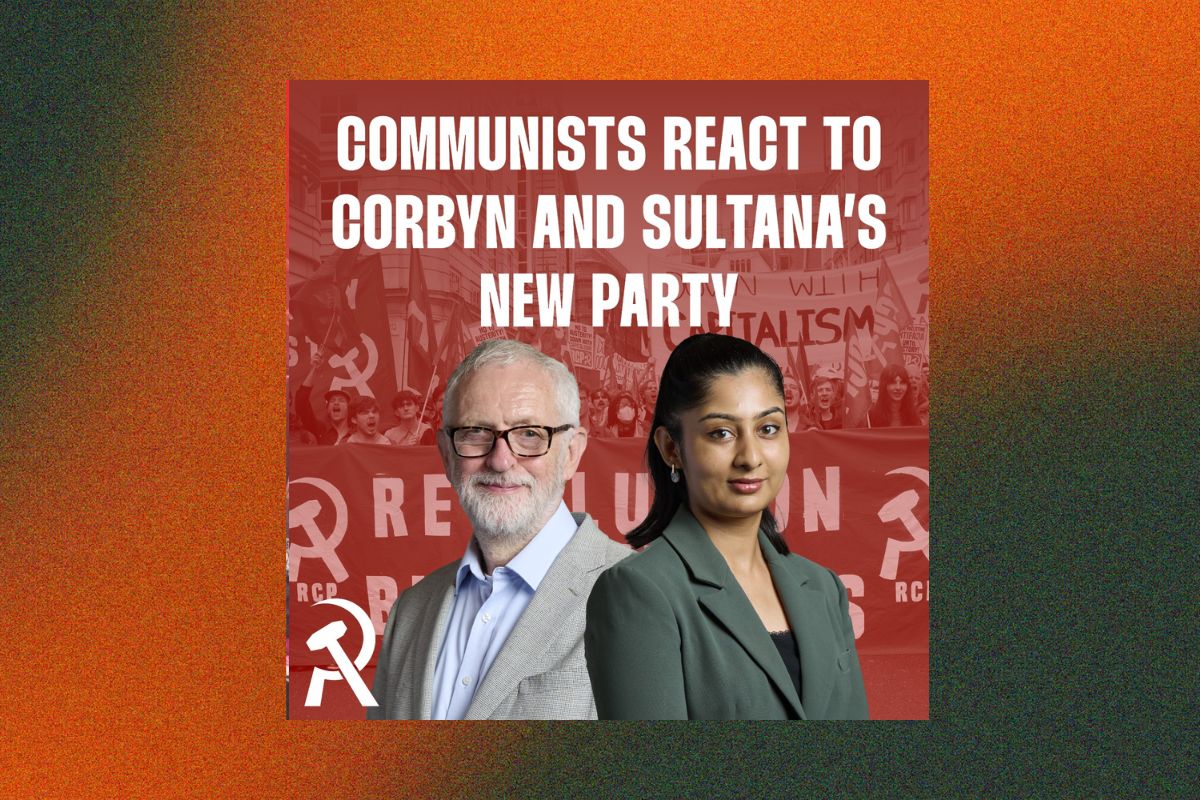In the second of a three-part analysis of political developments in Britain, we look at the perspectives for the Labour Party. A Corbyn government is on the horizon. But it will face sabotage and threats from day one.
We publish here an in-depth analysis of the political situation in Britain, which was discussed at the recent conference of Socialist Appeal supporters.
Although originally drafted in December, the processes and contradictions that this document outlines still lie at the heart of British politics.
In this second part, we look at the civil war raging within the Tories, the collapse of the political ‘centre ground’, and the prospects for a Corbyn Labour government in the coming period.
Crisis in the Tory Party
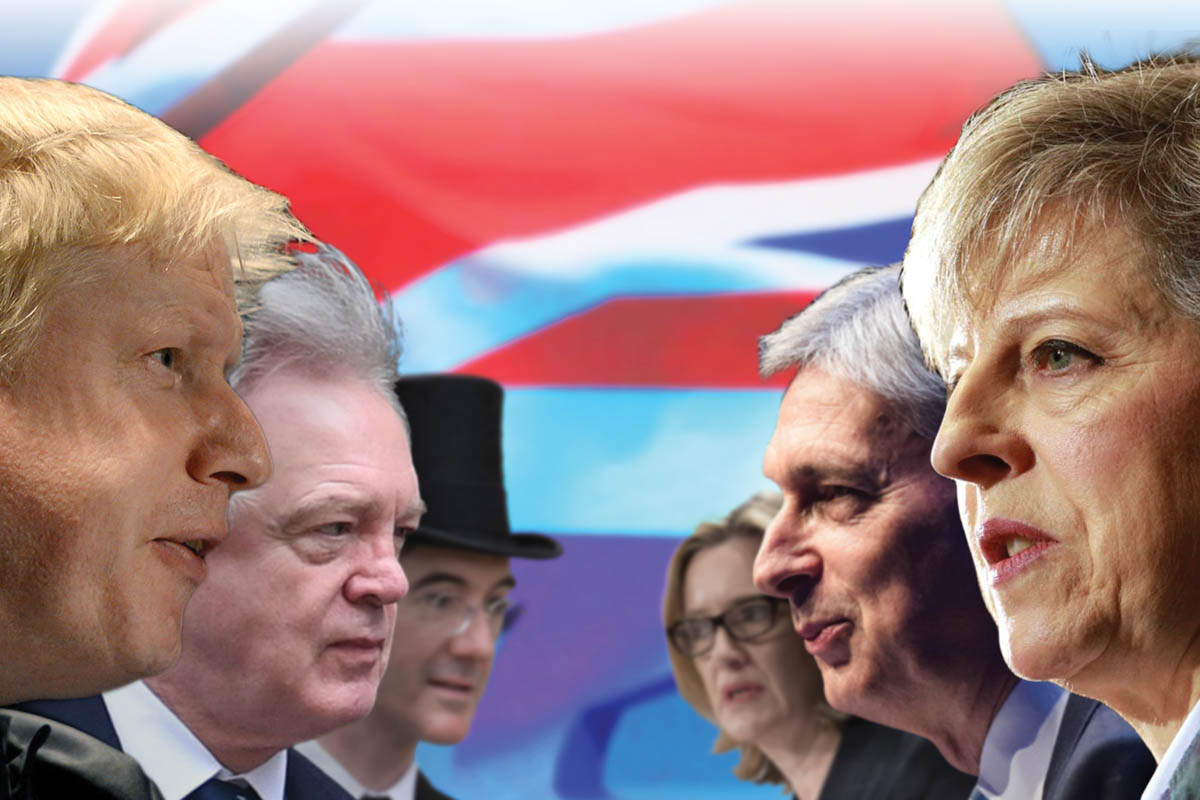 It is clear that the present May government is hanging on by its fingertips. Any crisis over Brexit or the collapse of the DUP deal could cause the fall of the government. The Tories are openly split, with different cabinet ministers attacking one another in public.
It is clear that the present May government is hanging on by its fingertips. Any crisis over Brexit or the collapse of the DUP deal could cause the fall of the government. The Tories are openly split, with different cabinet ministers attacking one another in public.
The party is therefore not in a position to win an election under present conditions. They only managed to scrape in by the skin of their teeth last June. Since then, they have lost even more support, with Labour now 7 points ahead in some opinion polls.
Nevertheless, despite the crises engulfing May and the Tory Party, we cannot rule out the government hanging on until the next scheduled election in 2022. Given the existing chaos of the volatile Brexit negotiations, the bourgeois do not want the further instability that the fall of May and a potential Tory split would generate. Importantly, the ruling class are terrified of the prospect of letting Corbyn into Downing Street.
The Conservative Party was once the most stable bourgeois party in Europe, the envy of their European counterparts. Today, the party is riven with splits and dominated by the most right-wing faction.
It is also in a process of steep decline, a mirror image of the decay and degeneration of British capitalism. The average age of Tory Party members is estimated to be 72. It has about 100,000 members, but less than 10% are “active”. Its social base has become very narrow. The attempt by David Cameron to modernise the party was doomed to fail. It is now the ‘nasty party’ once again.
While the ruling class prefers to rule through its direct instrument of the Tory party, this has now become a liability. This would not be too bad if the Labour Party had remained a tame and ‘loyal’ opposition. But that is no longer the case.
When Theresa May stands down, it will open the doors to a ferocious leadership contest that will further deepen the splits in the Tory party.
Already potential candidates are positioning themselves for the future challenge. Right-wing Brexiters Boris Johnson or Jacob Rees-Mogg appear to be the favourites in the Tory rank and file – a clear indication of its political make-up.
Whether either of them ends up as leader is anyone’s guess, but it is unlikely that any of these can lead the Tories to victory. The party is too discredited and Rees-Mogg in particular looks like someone from another planet.
The only figure that stands out as a credible leader of the Tory party is Ruth Davidson, the Tory leader in Scotland. She appears to have gained a national following after the Tory revival north of the border. She has a certain political instinct and fighting spirit.
But it will take more than that to turn the Tory party around. In any case, Davidson has ruled herself out. Not being a Westminster MP, she wishes to strengthen her base in Scotland, although it cannot be excluded that after the next election, she could be pushed forward.
A lot of things can happen before then. And in any case the choice of candidate is not the most important element in this particular equation.
A damaging split in the Tory party is therefore clearly on the cards. The pro-European wing, which is largely marginalised within the party, has recently become more vocal, even voting with Labour against the government on the terms of the Brexit negotiations. Here we see the outline of a possible realignment of British politics.
A new Centre party?
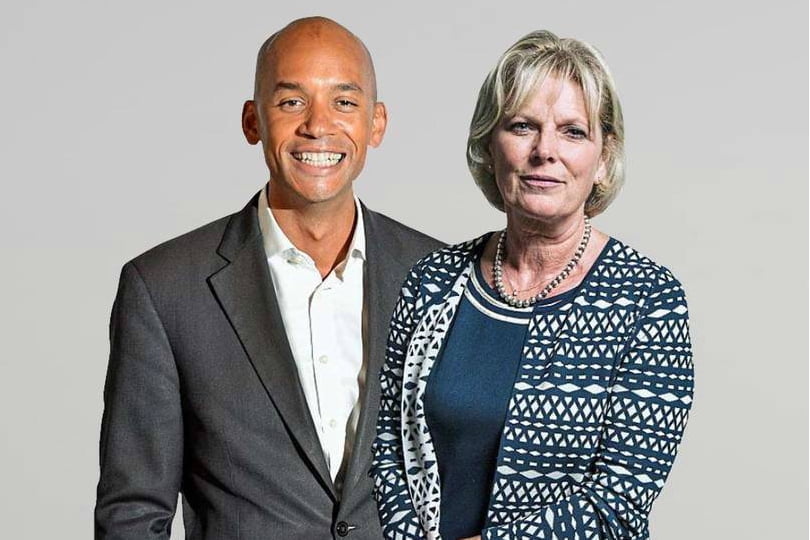 The ruling class is toying with the idea of creating a new Centre party made up of a merger of the ‘left wing’ of the Tories and the right wing of the Labour Party.
The ruling class is toying with the idea of creating a new Centre party made up of a merger of the ‘left wing’ of the Tories and the right wing of the Labour Party.
The experience of the past, however, shows that this will be very difficult to bring about. They were encouraged by the success of Macron in France, but there are many differences with Britain, not least the electoral system, which favours the two big parties at the expense of smaller formations.
The disastrous experience of the SDP in the 1980s also weighs heavily upon them. The SDP split the Labour vote, but failed to create a viable centre party.
The political situation in Britain, as with other countries, has become extremely polarised. The basis for any Centre party is therefore extremely weak and inherently unstable.
The centre ground has collapsed, as epitomised by the defeat of the Blairites within the Labour Party and the reduction of the Liberal Democrats to a handful of MPs in Parliament. The Lib Dems were hoping for a revival, on the back of the Brexit vote, by becoming the most ardent voice of the Remain camp. But they have instead been squeezed out by Corbyn’s Labour on the left and the Tory’s on the right.
UKIP, meanwhile, has become increasingly irrelevant in the wake of the EU referendum, with much of its vote now absorbed within the pro-Brexit wing of the Tories.
Such a move towards a new Centre party, if it were to happen, would have serious consequences. It would propel the rump Tory party to the right and propel the Corbyn Labour Party very much to the left.
This is a big gamble for the ruling class to take. They will not take it lightly, and is therefore not an immediate prospect. The two-party system served them well in the past and they will not abandon it as long as there is the slightest possibility of regaining firm control of both the Tories and Labour. But that possibility seems to grow fainter all the time.
Blairites on the backfoot
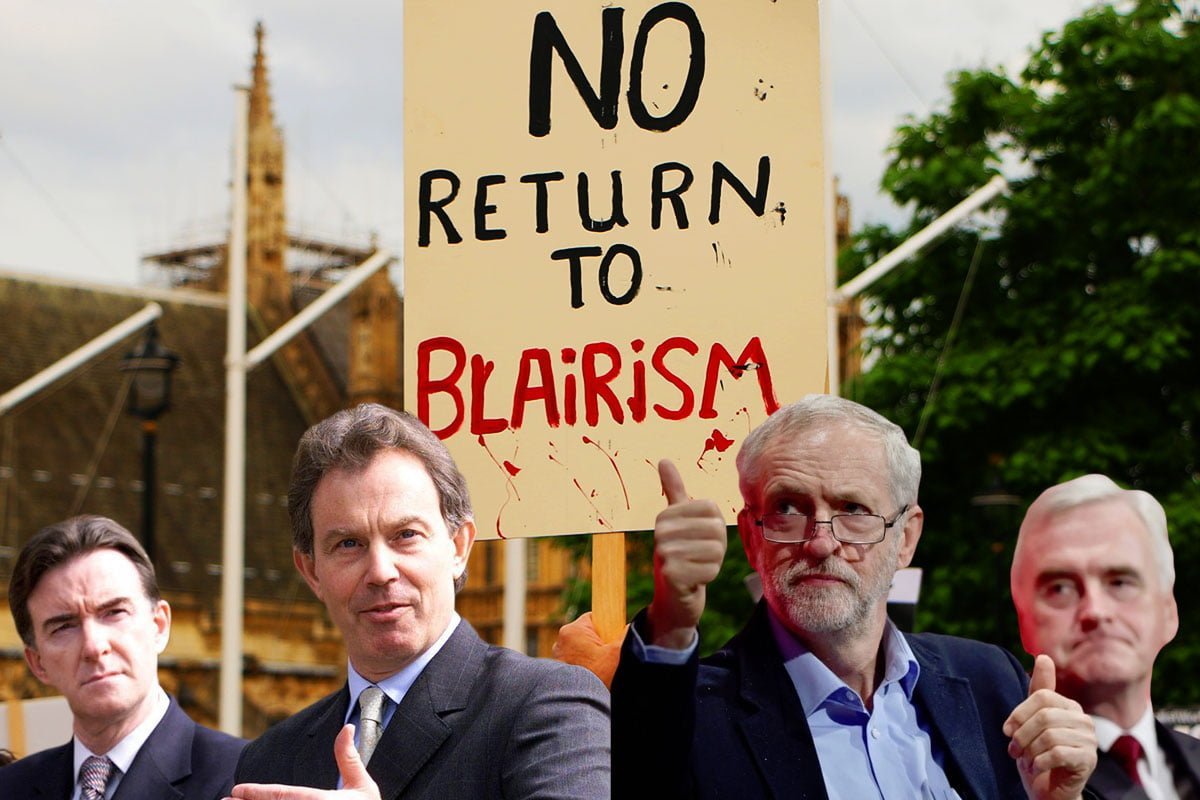 The idea of winning back the Labour Party must now seem a daunting task both to the ruling class and to its Blairite agents in the PLP. The plaintive appeals of Roy Hattersley to reclaim the party for the right wing reflected their sense of desperation at losing control – a desperation that is reflected in the very wording of his appeal:
The idea of winning back the Labour Party must now seem a daunting task both to the ruling class and to its Blairite agents in the PLP. The plaintive appeals of Roy Hattersley to reclaim the party for the right wing reflected their sense of desperation at losing control – a desperation that is reflected in the very wording of his appeal:
“Momentum – a party within the party which is dedicated to moving Labour to the far left of the political spectrum – is on the point of winning control of Labour’s policy, programme and constitution,” wails Hattersley.
“Momentum members and supporters – 844 of the 1,135 delegates – dominated this year’s annual conference and it seems likely that elections, now taking place, will provide a clear Momentum majority on Labour’s national executive.” What an admission!
This paints a very gloomy picture for the Labour right wing, who have ruled the roost for decades. They presided over Labour parties that were empty shells, absolutely moribund, dominated by small cliques of councillors and their hangers on. They came near to destroying the Labour Party, especially under Blair.
Now the epoch of the right wing is at an end, as the transformation of the Labour Party under Corbyn picks up speed. The mass influx of new members has made Labour the biggest political party in Europe.
The right-wing cliques that control local Labour parties hoped to keep the new members from participating, and have succeeded in a number of areas. But with each attempt to kick out Corbyn, the membership grew and got involved.
Meetings previously of 20 became 200. The new activists clashed with their MPs and the right wing. They soon realised they needed to get organised to challenge the old right-wing control. Battles opened up in Brighton, Bristol, Liverpool and many other places.
Local Labour parties and individuals were suspended and even expelled for frivolous reasons by Labour’s bureaucratic machine. The ‘Compliance Unit’ was used to conduct a purge. But all this was insufficient to close the floodgates.
The right wing has used every means possible to stop the advance of the left. They use the media to regularly denounce the left for ‘intimidation’, ‘sexism’ or ‘anti-Semitism’, none of which has any basis in fact.
When the Blairites were in control, they used every dirty trick to exclude the left. But that was acceptable to the media as it was a matter of keeping the right wing in control. They have, for instance, succeeded in pushing through the conference a ‘code of conduct’ that can and will be used for political ends.
Deselection on the cards
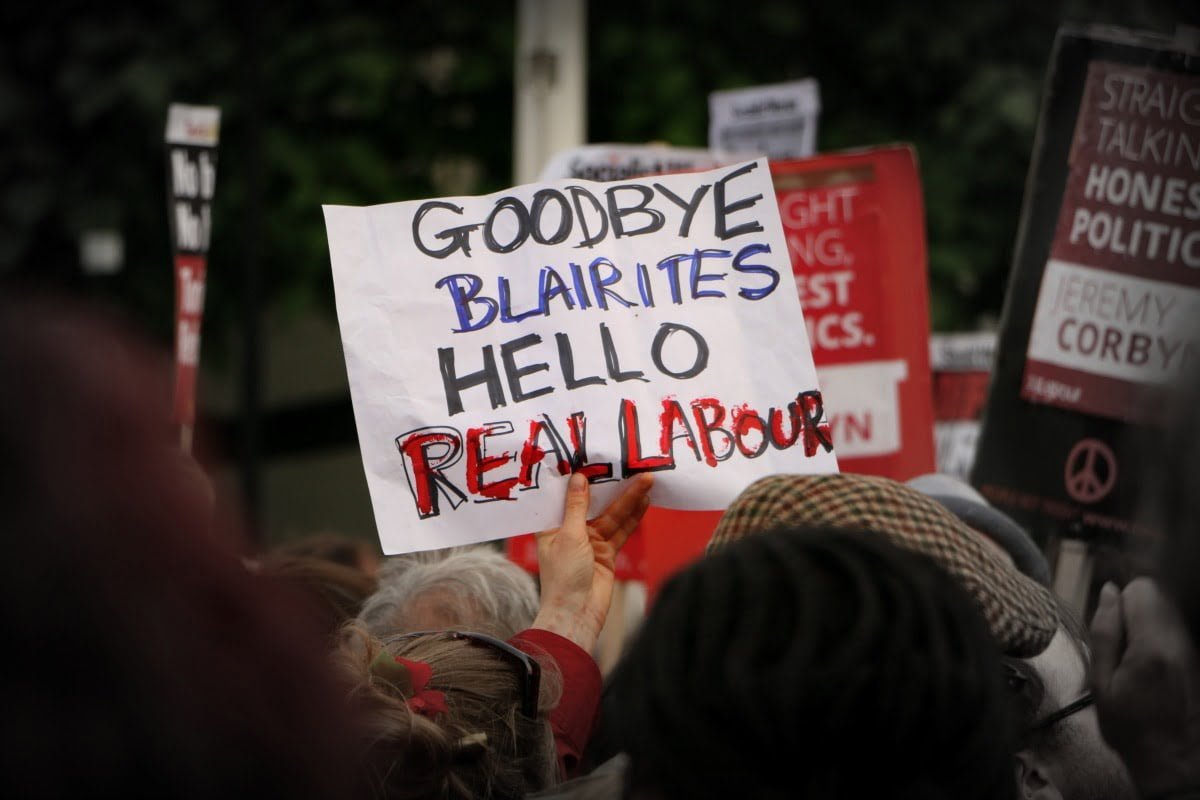 The right wing fears that deselection is implicit in the situation. “The shift to the left will begin with a revision of Labour rules and continue with the replacement of moderate MPs and councillors with Momentum nominees”, says Hattersley, who conveniently forgets that these were the very means that he and Kinnock used to drive out the left when they were in charge.
The right wing fears that deselection is implicit in the situation. “The shift to the left will begin with a revision of Labour rules and continue with the replacement of moderate MPs and councillors with Momentum nominees”, says Hattersley, who conveniently forgets that these were the very means that he and Kinnock used to drive out the left when they were in charge.
“If the extremists begin to deselect moderate MPs, others – who are, or believe themselves to be, under threat – that will split the party and keep Labour out of office for a generation.”
Here we have the real threat to Labour: a threat from the right, from the careerists and bourgeois infiltrators, who have been temporarily forced to keep their heads down but who will never be reconciled to Corbyn and the left. They will be prepared to carry out their threat to split the Party at a suitable moment when required.
“The cull of councillors has already begun,” states Hattersley. “The assault is most violent in the London boroughs in which Momentum thrives. Last month, it moved through Haringey, ward by ward, claiming to be Corbyn’s revolutionary guard – although his leadership is no longer in question – and pretending that it stands for democracy when it really seeks Labour’s domination by a narrow clique.”
Hattersley and co. conducted their own purge to drive out the left and secure the domination of the right. They were ruthless in carrying out this purge. They closed down left-wing local Labour parties, suspending and expelling members at the drop of a hat. Now that they have lost their support, they squeal about losing their positions. This whole diatribe reeks of hypocrisy.
“The Haringey meetings were swamped by recent recruits. Many of them came to selection conferences with the premeditated intention of sacking the sitting councillors. The same overt hostility poisoned the atmosphere at the annual meeting of the Wavertree constituency in Liverpool, where Momentum won nine out of 10 of the influential offices. Long-standing party members described the atmosphere as ‘intimidating’. Several of the aggressive newcomers were identified as recent pamphleteers for the far left.”
“In Manchester and Sheffield, moderate councillors have already been deselected or have chosen to resign rather than face the humiliation of rejection. In Liverpool, the old gang is back.”
The accusation against Wavertree is completely unfounded and reflects the cynicism of the right. This was shown most graphically in another Merseyside CLP, Wallasey, where the accusations of homophobia raised in the leadership race have been quietly dropped without explanation.
Hattersley states that they defeated the Militant in the past. But now the tide has turned. The left is backed by Unite and other trade unions. Hundreds of thousands have joined the Labour Party – not to support cuts and austerity, which are being regularly voted through by right-wing councillors locally, but to transform the Labour Party into a party of real social change.
Of course, the right wing will continue to fight to maintain its grip on the Party. But the balance of forces has shifted towards the left.
In the past, delegates from the Party branches were overwhelmingly right wing. Today, the opposite is the case. Momentum had 844 of the 1,135 delegates to this year’s annual conference. The left now dominates the conference. It has won a majority on the NEC of the party. The right are very much on the retreat or have been routed.
Hattersley has the cheek to lecture Corbyn about how to win an election with ‘moderate’ policies, when he, along with Kinnock, lost every general election he ever fought to the Tories!
Welsh Labour and Plaid
The political situation in Wales of course differs to a certain extent to that of the rest of Britain, with the existence of the national question and the rise of Plaid Cymru. The national question, however, is far less prominent than in Scotland. Labour has dominated Welsh politics for generations. Labour currently holds 28 out of 40 Westminster MPs, the Tories have 8 and Plaid has 4. The Lib Dems have zero.
The Welsh Labour Party is very much dominated by the right wing, as has been the case for a long time. The Welsh assembly, in turn, is dominated by right-wing Labour under Carwyn Jones.
In the 2017 general election, the right-wing Welsh Labour leadership deliberately distanced themselves from Corbyn under the banner of ‘Welsh Labour’. They hoped that Corbyn would fail. But Labour’s success across the country, including in Wales, put the right wing on the back foot, as it has nationally.
The record of the Labour Party in Wales has produced widespread scepticism towards the party, which has only been cut across by the rise of Corbyn nationally.
Plaid has made certain gains over the past period, with the loss of traditional Labour strongholds to Plaid in areas such as Rhondda and Grangetown. This was due to the right wing policies pursued by Labour. The rise of Corbyn will tend to cut across Plaid’s success. In any case, support for independence, unlike in Scotland, is extremely low, at around 5%.
The election of Corbyn has certainly had an effect on the Welsh Labour Party, but for the moment the right are still in control. Eventually, through events, this grip will be broken and there will be a shift to the left in the party.
For the moment the ‘official’ left is split by a bureaucratic divide between Welsh Labour Grassroots, who claim the banner of Momentum, and the national office of Momentum, who also organise branches in Wales. New layers will come into activity that will eradicate this problem and a genuine left will emerge.
Reformism vs revolution
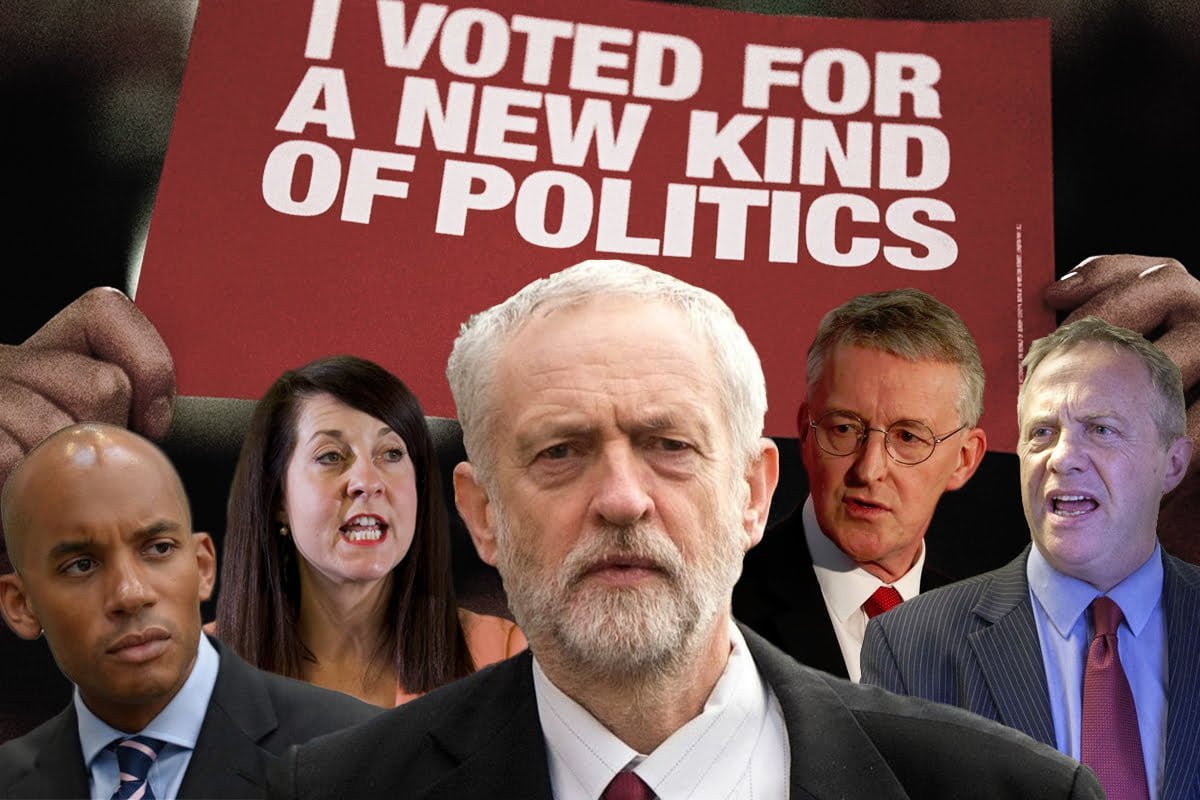 The left have now become increasingly dominant in the Labour Party. The right wing still nevertheless dominates the PLP, but they have become more and more demoralised. They have now also lost control of the machine at national headquarters, with the appointment of the new general secretary, Jennie Formby.
The left have now become increasingly dominant in the Labour Party. The right wing still nevertheless dominates the PLP, but they have become more and more demoralised. They have now also lost control of the machine at national headquarters, with the appointment of the new general secretary, Jennie Formby.
A number of MPs have fought off local challenges to their position, but others are very much under pressure to either submit or go. A growing number of right-wing councillors have decided to retire rather than carry on fighting a losing battle. Their hope that Corbyn would be crushed at the last election proved baseless. Now, without a perspective, they are demoralised.
The Blairites have been forced to temporarily retreat, but they have not yet lost all hope that they will eventually regain control of the Party by one means or another, when circumstances change.
They are well aware of the failure of the Social Democratic split from Labour and are reluctant to surrender without a fight. They will manoeuvre and intrigue for as long as they can, and will probably only jump ship when they are directly threatened with deselection.
It is quite likely that they will hang on until after a general election. Some may even accept posts in a Corbyn cabinet, only to betray when the time comes.
At what point the right will split away from the Labour Party is difficult to predict. It could come during the lifetime of a Labour government. The ruling class may choose to bring down a Corbyn government at a certain point by creating some kind of scandal. The Blairites will act as a Trojan Horse.
Even if Labour survives and is defeated at an election, it will be the right wing who will be blamed and they could be vomited out of the Party. Different variants are possible and it is impossible to be precise about the timing of future events.
The main thing is to understand the fundamental processes and the internal contradictions within the Labour Party that will inevitably lead to a split at a certain stage.
A split in the Labour Party will impel it further to the left. Under conditions of crisis, it can shift very far to the left. This will have far reaching consequences.
The Labour Party could even be pushed in a centrist direction – not centrism in the colloquial sense (the mythical ‘centre ground’ of politics), but in the sense used by Trotsky; i.e. to a position that stands between reformism and Marxism.
We need to be clear about the limitations of left reformism and centrism, however. In the Spanish Revolution, the centrist POUM leadership failed to give a consistent revolutionary lead and ended up in the bourgeois government which liquidated the workers’ committees. Then they were driven out and crushed.
Leading left reformist commentators introduce the maximum confusion by promoting the illusion that capitalism can be reformed. This is the function of the likes of Owen Jones, who has now flipped back over to supporting Corbyn, and Paul Mason, who looks “beyond Marxism”. Their job is to provide the arguments and justification for left reformism.
While we stand for the victory of the left wing over the right, we still maintain our criticisms about the limits of reformism. There can be no illusions in left reformism and centrism. We cannot blur the differences between revolution and reformism.
What happened in Greece when SYRIZA came to power provides a very instructive lesson on the limits of trying to find a way out of the crisis within the confines of capitalism.
Labour in power
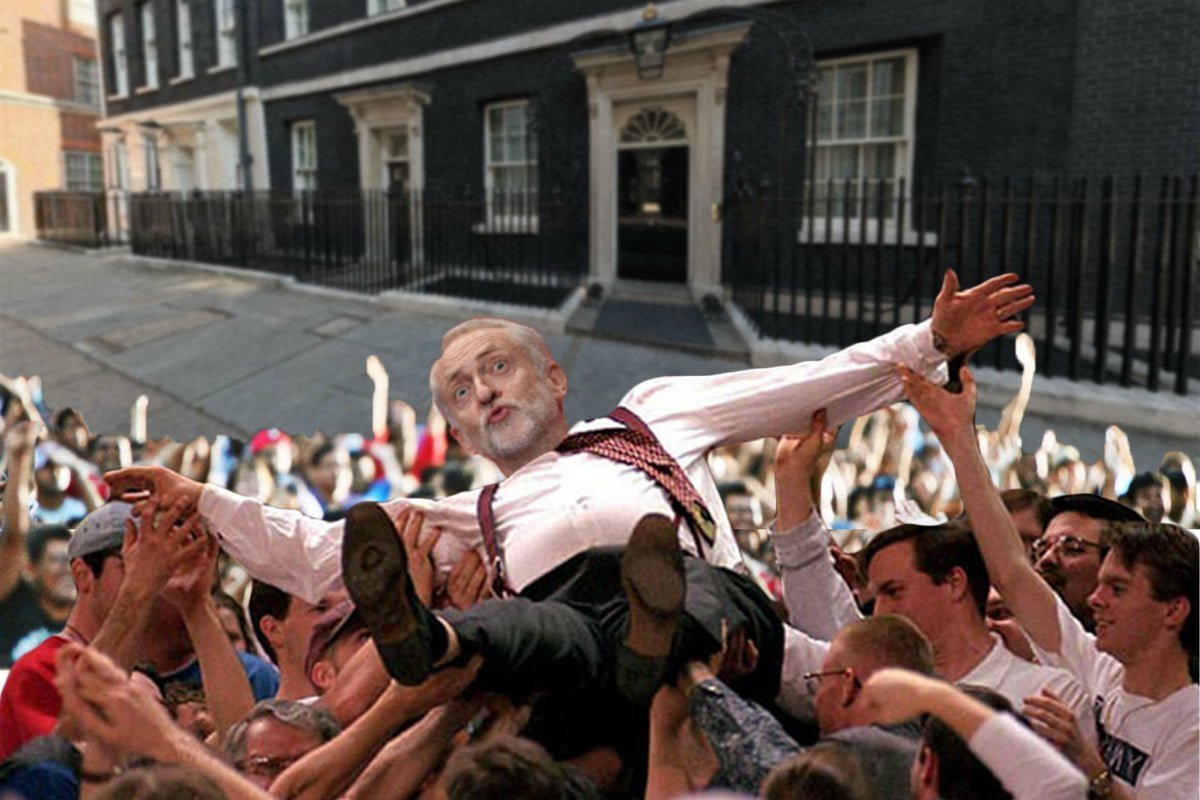 In the next period we are likely to see the coming to power of a Corbyn Labour government. This could take different forms depending on the parliamentary arithmetic. It could be a majority Labour government or possibly a minority government supported from outside by the SNP.
In the next period we are likely to see the coming to power of a Corbyn Labour government. This could take different forms depending on the parliamentary arithmetic. It could be a majority Labour government or possibly a minority government supported from outside by the SNP.
Whatever the complexion, this will constitute a fundamental change in the situation. We will fight for a Corbyn government, but on a socialist programme. We will fully participate in the campaign with workers and youth and explain our ideas.
The sabotage that a Labour government will experience in power will show in practise – not in theory – the limits of reformism, and will provide a valuable lesson for the workers and youth of Britain of the need for revolutionary change.
Of course, there will be enormous support for a Corbyn government to begin with. There will be big illusions and hopes in such a government. There will be a lot of radical talk in the honeymoon period. At first, such a left-reformist government will seek to carry out piecemeal reforms that do not cost any money. They will try to operate within the confines of capitalism.
But capitalism is in crisis and cannot afford reforms. The government will therefore quickly come up against the resistance and sabotage of the bankers and capitalists. It will have to decide – as Tsipras in Greece had to decide – whether to stick to its programme and take action against the banks and monopolies, or to bow to the pressure of big business and abandon its programme and introduce cuts.
If the latter happens, it could result in a swing away from Labour among the middle class and even sections of the working class, disappointed by the results.
We must understand that it is not a question of how sincere or not the left-wing leaders are. The road to hell is paved with good intentions. It is the programme and the laws of capitalism that are decisive. If you base yourselves on capitalism then you will be forced to carry out the dictates of capitalism. It is as simple as that.
It is the interests of the monopolies that decide and dominate the economy. That has been the whole experience of past Labour governments, as well as of Hollande in France, Tsipras, and other reformists in the recent period. The only alternative is to break with capitalism and introduce revolutionary measures to achieve a socialist programme.
The limits of Keynesianism
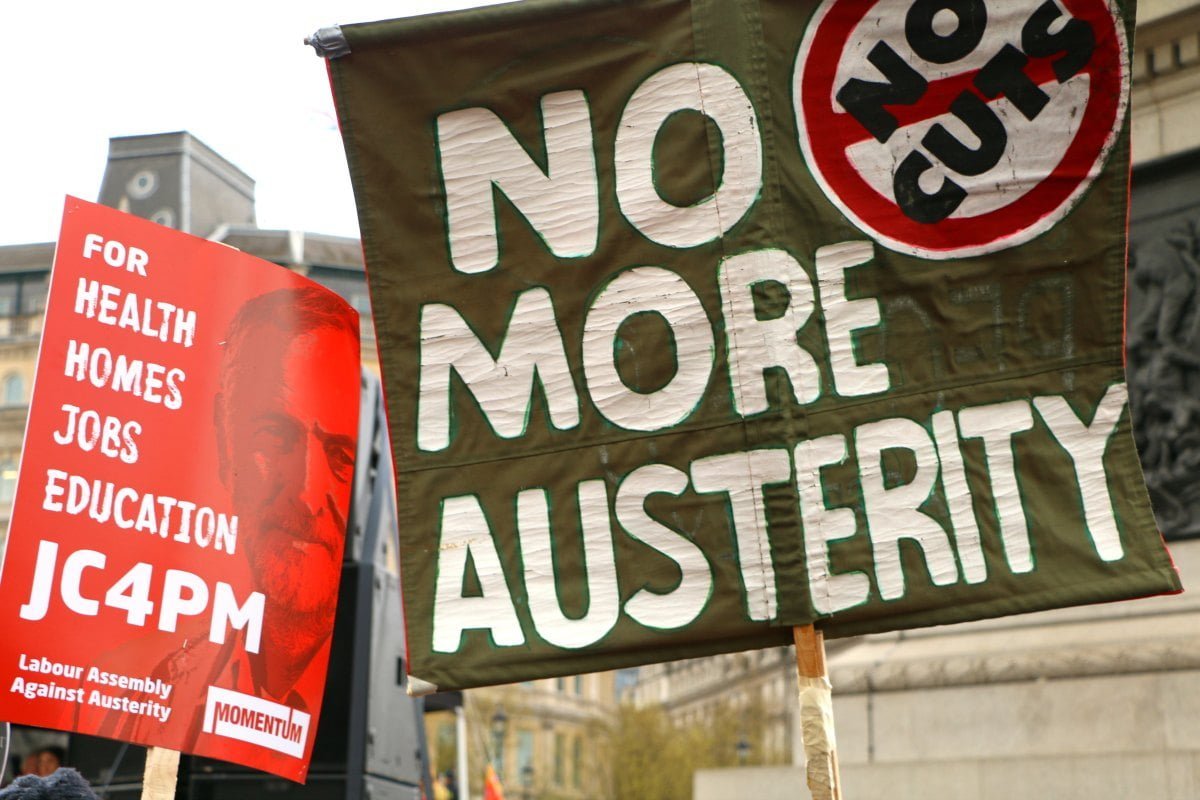 John McDonnell has surrounded himself with a group of Keynesian advisers; a panel of seven economists, which included Ann Pettifor and Danny Blanchflower, formerly from the Bank of England. Several of these advisers quit in the wake of the EU referendum and the attempted Blairite “chicken coup”, leaving just Pettifor, who predicts that a Corbyn government would be good for business because it would be “economically expansionary”.
John McDonnell has surrounded himself with a group of Keynesian advisers; a panel of seven economists, which included Ann Pettifor and Danny Blanchflower, formerly from the Bank of England. Several of these advisers quit in the wake of the EU referendum and the attempted Blairite “chicken coup”, leaving just Pettifor, who predicts that a Corbyn government would be good for business because it would be “economically expansionary”.
The Labour leadership will ultimately turn out to be pragmatic, she suggests. “You just have to look at past Labour governments. The party is prepared to work with business and the City of London.”
But there is one small detail: this whole experience led to the capitulation of these governments to big business.
“Falling incomes and spare capacity have not been good for business,” states Pettifor. “While the Treasury, the Office for Budget Responsibility, an independent watchdog, and the National Institute of Economic and Social Research, a think-tank, have obsessed over supply-side issues, politicians have been persuaded by economists to sit on their hands, as Britain’s economy falters under huge, unused capacity.”
But this overcapacity is due to the contradictions of capitalism, where investment is falling. It is a symptom of the overproduction of capital and the limits of the market. Why invest when there is over-capacity, too much machinery, too many buildings, too much everything (for the narrow limits of the market)?
No wonder that in 2016, UK investment remained pitifully low – 116th out of 141 countries in terms of capital investment as a percentage of GDP. Yet without investment there can be no real development of the economy.
But what the capitalists lack are not simply markets, but profitable markets. Weak demand is only one side of the capitalist equation. These contradictions are a product of the laws of the capitalist system, which cannot be resolved by ‘reforms’.
In order not to frighten big business, Pettifor tries to show how harmless and business-friendly a Labour government would be.
“There is, nevertheless, anxiety over the scale of Labour’s public investment plans and their impact on the UK’s credit rating. But Labour has a record, in key respects, of being more fiscally conservative than Conservatives. For example, a review by economists at Policy Research in Macroeconomics of current budget deficits or surpluses (that is, excluding public investment) for the whole period before the global financial crisis, from 1956 to 2008, reveals that Conservative governments had an average annual surplus of 0.3% of GDP, while Labour governments had an average annual surplus of 1.1%.”
This apparently is an attempt to show how ‘sensible’ and fiscally ‘responsible’ a Labour government would be.
“The shadow chancellor John McDonnell’s plans include a commitment to a ‘fiscal credibility rule’ – the state would only borrow to invest in capital projects which will, over time, pay for themselves. In the event of a recession, this rule would only be suspended when technocrats at the Bank of England decide monetary policy can no longer operate with interest rates around 0%,” explains Pettifor.
This attempt to mimic the Tories is hardly a radical policy. But it will not reassure the City or convince the bankers and capitalists to drop their opposition to a Corbyn Labour government.
Labour will “at last take action to stimulate a private sector that has significant spare capacity; one not yet fully recovered from the catastrophic impact of the great financial crisis and that still lacks confidence.”
“Business leaders know their biggest problem is spare capacity and a shortage of customers coming through the door. That is why they have been willing to listen to the shadow chancellor’s ‘tea offensive’, and that is why they will ignore the Daily Mail’s Pavlovian howling,” states our ‘left’ economist.
This shows us the kind of advice given by such economists to McDonnell and Corbyn. In effect, they say we must capitulate and cooperate with capitalism and the City of London and all will be well!
They believe austerity is a political choice, not something imposed by the crisis of capitalism, which they refuse to recognise.
This policy is the road to disaster. It is the same road that Tsipras took and saw his complete capitulation to the Troika. Now Tsipras is implementing austerity policies worse than in the past. His support has collapsed. This is an important lesson for Britain.

